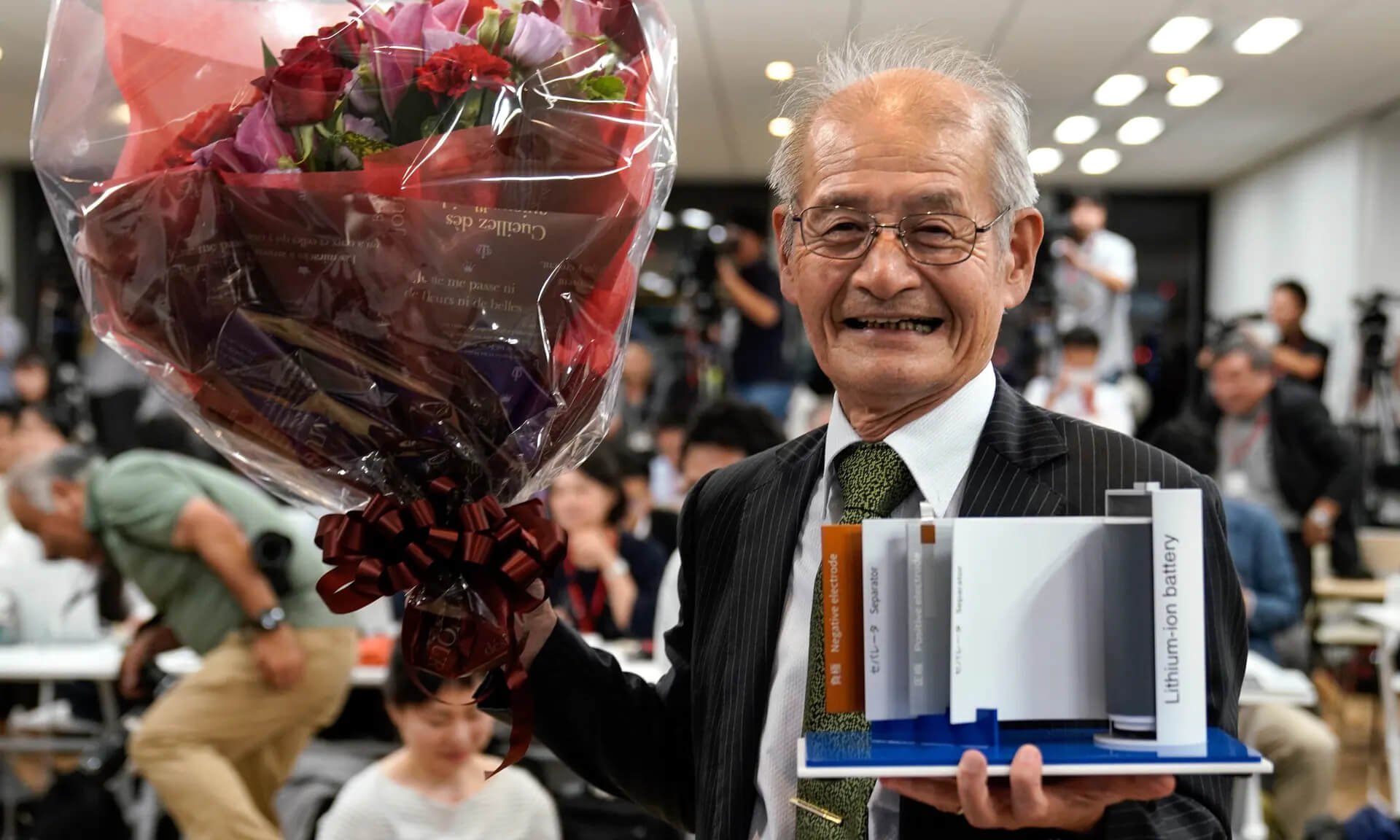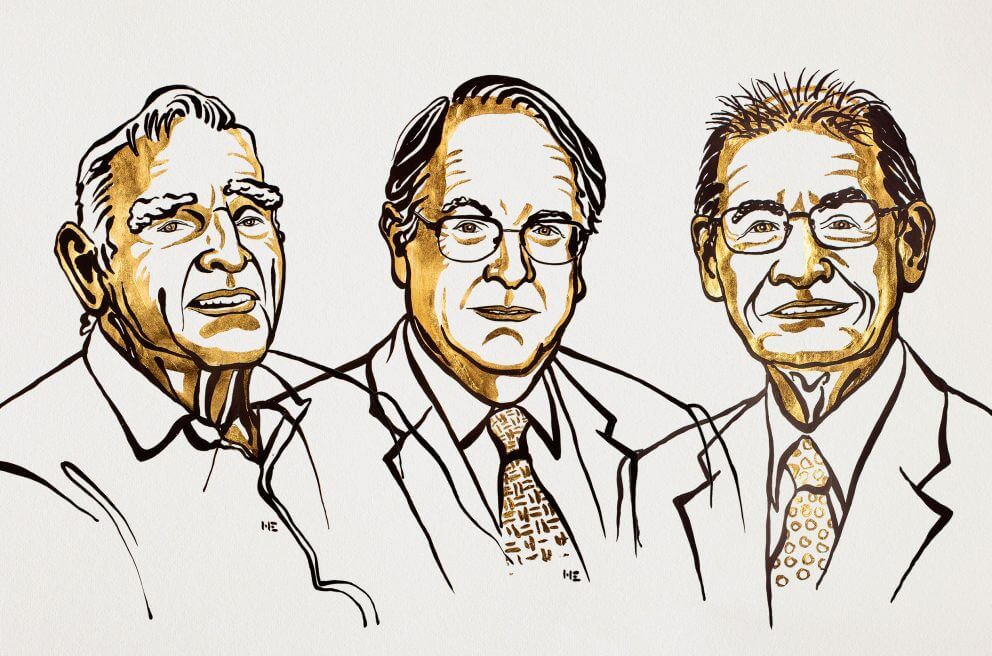Why it matters: Lithium-ion batteries power nearly all of the devices we routinely depend upon. They've also pushed forward the EV industry and serve as an alternative to fossil fuels by storing energy generated through solar and wind power. Their huge impact on charging (and recharging) the world forward is the reason why innovators of this technology were awarded this year's Nobel Prize in Chemistry.
Last year saw the Nobel Prize in Chemistry going to minds responsible "for the phage display of peptides and antibodies." This year, it awarded innovators of a product that most of us are familiar with: Lithium-ion batteries.
The Royal Swedish Academy of Sciences awarded the following three scholars for their work on the development of this technology.
- John B. Goodenough - The University of Texas at Austin, USA
- M. Stanley Whittingham - Binghamton University, State University of New York, USA
- Akira Yoshino - Asahi Kasei Corporation, Tokyo and Meijo University, Nagoya, Japan
The 97-year-old Goodenough, who was previously conferred the National Medal of Science in 2013, is now the oldest Nobel laureate to receive the award in any discipline. He's also said to have slept through the announcement and came to know of it from a fellow scientist, Prof Maria Helena Braga. "Wake up, wake up, you've won the Nobel prize!" said Prof Maria, as she surprised Goodenough with the news. "I had to show him on my phone about 20 times before he believed me," she said.
In an afternoon press briefing, Goodenough stated that he was "very happy" at receiving the Nobel award. "Life is full of surprises," he said, though it "doesn't make much difference," Goodenough added, joking about receiving the prize at his age.
Stanley Whittingam, 77, was "overcome with gratitude at receiving this award," and is hopeful that this recognition will "help to shine a much-needed light on the (US) nation's energy future,".
"This is such a wonderful thing, and I am very surprised," said 71-year-old Yoshino adding that he had only gotten a cell phone in recent years. "I have long felt a bit of rejection towards mobile phones, so I have never had one until recently," he said.
The trio's work consisted of improving on each others' research and development on lithium's use in rechargeable batteries. Back in the 1970s, the light metal was found to be a suitable material to act as an anode (positive electrode of the battery), given its chemical properties. However, one of them was high reactivity, preventing the metal from being used to its full potential.
It was Whittingam who came up with the first functional lithium battery as he looked to develop a fossil-free energy alternative during the on-going oil crisis. However, his battery ran the risk of exploding if charged repeatedly. Goodenough carried over from Whittingam's work and used cobalt oxide in the cathode of the battery that doubled its voltage for creating more powerful batteries.

It wasn't until 1985, when Yoshino made further improvements and came up with the first commercially viable lithium-ion battery where the anode consisted of lithium ions and the electrons were housed in a material called "petroleum coke." This design made the battery much safer than its lithium metal-based predecessors.
The lithium-ion battery has since been worked upon and improved continuously, powering many of our routinely used electronics including modern and sleek smartphones, laptops, electric cars and for storing energy generated by solar and wind power.
"Lithium-ion batteries have revolutionised our lives since they first entered the market in 1991. They have laid the foundation of a wireless, fossil fuel-free society, and are of the greatest benefit to humankind," noted the press release. The official ceremony will be held on December 10 in Stockholm, Sweden, where the trio is expected to receive the award from King Carl XVI Gustaf.
The Nobel Prize season began this week, starting with the Medicine Prize being awarded to hypoxia researchers (cells relation with oxygen levels), Physics Prize was announced on Tuesday for discoveries in the field of cosmology. The Literature Prize will be awarded on Thursday, after being postponed (first time in 70 years) due to a scandal in 2018, followed by the Peace Prize on Friday where Swedish teen climate activist Greta Thunberg is expected to be the recipient.
The Economics Prize being awarded on Monday, October 14 will conclude this year's Nobel Prize season.
